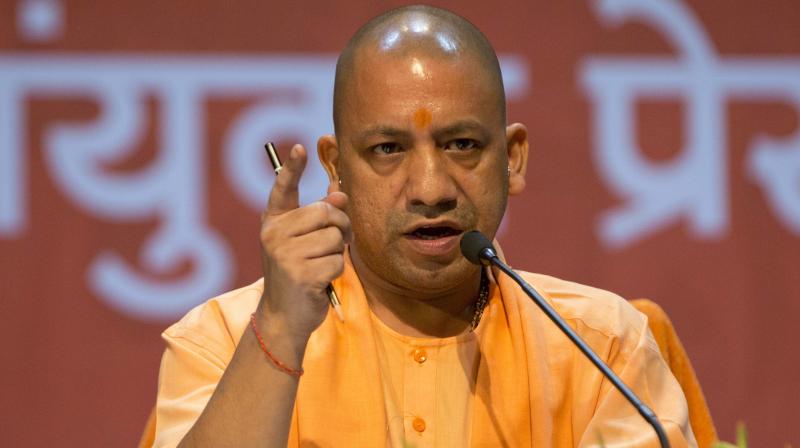Dilli Ka Babu: Politics and policing

A 1992-batch IPS officer, Dawa Sherpa, has stirred a major controversy in Uttar Pradesh following his appointment as additional director-general of police (ADGP) of Gorakhpur, chief minister Yogi Adityanath’s home base. The state government has been accused of appointing the cop because of his past affiliation with the ruling party.
Sources say that Mr Sherpa had sought voluntary retirement (VRS) in 2008 and reportedly joined the BJP to contest from the Darjeeling Lok Sabha seat. However, his plea for the VRS was turned down by the Union home ministry as he had not completed mandatory 20 years of service. Reportedly, Mr Sherpa was “missing” for four years and “rejoined” the UP police in 2012 as superintendent of police. He was promoted as DIG and again as IG in 2013 itself and was finally made ADG in January 2016.
It is certainly an odd case, of perhaps being the only officer in the IPS who was absent for four years, engaged in active politics and then returned to the fold. The UP home department, however, says that “nothing amiss” has been found in Mr Sherpa’s service records. But many serving and retired IPS officers claim that the government is being “soft” towards the officer who is liable for dismissal from service for being associated with a political party.
PMO intervenes in Jharkhand
Jharkhand chief secretary Rajbala Verma, who has had a controversial career, has now courted fresh trouble just ahead of her retirement. She has now been accused of shielding an officer who allegedly indulged in misconduct in coal block allocation. Sources say that the PMO had now written to the principal secretary of Jharkhand chief minister Raghubar Das, asking for a probe against Ms Verma and senior IPS officer A.P. Singh and take necessary action.
Ms Verma, a 1983-batch Bihar cadre IAS officer, came under a cloud in the allocation of 200 acres of land to a coal mining company. Earlier, she faced attack from Opposition parties for allegedly writing to a private bank to pressure it to fund her son’s company. Besides, she was also accused of laxity in the probe concerning the fodder scam.
Though Ms Verma managed to avoid responding to several notices from the CBI, with the PMO entering the picture, sources say, the chief minister may not have any options left.
Bringing down the curtain
The current chairman of the rather silent Banks Board Bureau (BBB) and former CAG, Vinod Rai, is due to retire at the end of March. It now appears that the government is actively considering dissolving the bureau itself. The government apparently has been struggling to find a successor to Mr Rai and the prevailing view is that it has decided to shut down the bureau.
The bureau, an autonomous body under the aegis of the department of financial services, was set up in 2016 to help the government in selection of top executives of public sector banks and enforce a code of conduct and ethics for managerial personnel.
Sources say that Mr Rai was unable to make much headway in implementing the bureau’s charter. And in the light of the recent fraud at the Punjab National Bank, the inadequacies of the bureau show up even more starkly. Those in the know say that from its very inception, the BBB was completely marginalised in the appointment of all the top-level executives, including the head of Punjab National Bank. One BBB member, H.N. Sinor, even resigned after the board was bypassed when the government changed the top management of Bank of India and PNB. In the rejig, PNB chief Usha Ananthasubramanian was shifted to Allahabad Bank and Melwyn O. Rego, head of Bank of India, was sent to Syndicate Bank. Is it the end of the road for BBB? We’ll learn in the days ahead.

